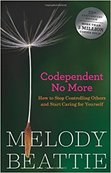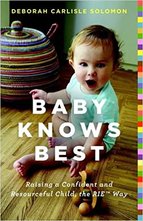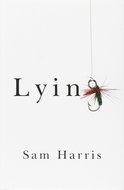 I often find myself worrying more about others than myself and getting into too much "caretaking." I try to control situations so that those around me are always "happy," which leads to lots of problems for me and too much tension and worrying overall. A podcast I was listening to recently interviewed Melody Beattie, the author of Codependent No More: How to Stop Controlling Others and Start Caring for Yourself, so I decided to read her book because I thought I could learn something relevant to myself. I didn't actually find the book very helpful, and I didn't like all the religious aspects of it. I also didn't realize the book was so focused on alcoholism and the spouses of alcoholics (which luckily isn't relevant to me); I thought it was about general caretaking behavior. Those general aspects were discussed, and there were some good points and some advice that I can adopt, which I've included in my notes below. Is someone else's problem your problem? Preface Intro Spouses of alcoholics who rescue them Part 1 what is it and who has it 1 Jessica 2 other stories 3 codependency Being Partner to dependency Enmeshed Being in relationship with troubled needy or dependent person Someone who has let another person’s behavior affect him or her and is obsessed with controlling that person's behavior Recovery only in ourselves 4 codependent characteristics Caretaking, anticipating others needs, fixing others problems, pleasing others Low self worth, blame selves, feel different than others, expect perfection Repression, no own desires Obsession, worrying, focus on others Controlling, think they know best Denial, assume tmrw will be better Dependency, assume others don't love them, feel trapped Poor communication, ask indirectly, manipulate Weak boundaries, complain Lack of trust, don't trust selves or others Anger, afraid of it Sex problems, hard to ask for what want Part 2 basics of self care 5 detachment Not withdrawal or removal of love Releasing from person or problem Each person responsible for self and worrying doesn't help Keep hands off other people's problems Let people live own lives and live my own Present moment living. Let life happen instead of controlling Accept reality Make most of each day Healthy neutrality Care without being involved Honesty Openness Willingness to try Need to detach most when seems like the most difficult thing to do 6 don't react about every minute Overreacting to others feelings or potential ones Don't reject self or give others that power Don't take things personally Things have less to do with us than we think Don't have to react Recognize when ur reacting “Made me feel” is wrong Not responsible for others Make life easier for u Figure out what need to take care of yourself 7 set yourself free Often force things to happen Figure out ways we think we can control others to do what we want them to do but not sustainable Instead it ends up controlling us Cannot control or change people 8 remove the victim We are the rescuers and caretakers Say yes when mean no Rescuer, persecutor, victim cycle At heart of rescuing us low self worth Shouldn't do things for others if don't enjoy it 9 un-dependence Face the aloneness every human must face Not dependent on other people Approval and happiness doesn't come from others Depend on self 10 live your own life 11 have love affair with self We are exactly as meant to be Stop picking on self 12 learn art of acceptance Feel your own feelings 14 anger Ok to feel it when u need to Write letter that u never send 15 yes you can think Feed mind positive things Improve mind daily 16 set own goals Omit shoulds 17 communication Say what mean and mean what say This Is what I need from you / want from you I love u but I love me too Ignore others nonsense I don't want to discuss this This is as far as I go Sounds like you're having a problem and let go Take self seriously 18 work a 12 step program Admit powerless and controlled Believe power greater than selves can restore us. Spiritual not religion. Make religion to turn care of life over. Purpose and plan. Make searching and fearless moral inventory of selves Admit nature of wrongs to others Ready for outdated behavior to go away Ask humbly to remove Make list of all harmed including self and make amends Make direct amends Continue to take personal inventory Sought through prayer meditation for help Carry message to others 19 pieces and bits Limits and boundaries 20 learning to live and love again
2 Comments
 Continuing with my self-made RIE reading curriculum, I read Baby Knows Best: Raising a Confident and Resourceful Child, the RIE™ Way by Deborah Carlisle Solomon. It was a nice overview of how all the various principles applied to different parts of a child's life. I did take note of some nice phrasings of effective responses to different situations. Below are my full notes. Intro Observe more do less 1 RIE way See who ur child is becoming instead of trying to mold them yourself RIE principles 2 at home with newborn You're really crying. I hear you. No on swaddling. Sleep sack better but only for a few months. 3 care for your baby Chances for connection Tarry time to give chance to process Feeding 4 sleep Wait and then wait a little longer 5 free to move Crawl down stairs head first ok More language acquisition with rear racing stroller Allow falls for learning 6 play Set up play area with same objects in same locations each day List of good objects Praise only for social adaptation for something that's really hard Just describe what they accomplished 7 learning limits Modeling Comfort both kids during conflict Natural consequences vs punishment 8 toddlers Don't end sentences with “ok?” State facts about what will happen When I get back, it'll be time to go home Allow choosing bibs and socks and walking vs hopping Toilet learning. Encourage so baby does own work of taking off clothes and wiping even if takes longer. Loose and easy to drop pants. No fuss during accidents. Extra layers of waterproof sheets in bed. 9 as baby and family grow Constant change and adaption 10 child care Slow moving caregiver 11 parenting support Form own playgroup of 4 families in same weekly home  I've had a really crazy month and a half, but things are settling down a bit now, so I want to catch up on blog posts for the books I completed earlier this year. I enjoyed Sam Harris's Waking Up book and have recently been getting into his podcast by the same name. I heard about his Lying book, and I found it to be an interesting, quick read which hit on a lot of good points that I hadn't thought much about. Since reading it, I have noticed myself paying more attention to the concept of honesty in all its forms. Below are my notes on the book. Lying is intentionally hoping to deceive others who expect honest communication Ppl lie so others form beliefs that are not true Truthfulness is being accurate to one's beliefs Doesn't require speaking whole truth All lies harm relationship Two types of lies: omission vs commission White lies Not ok Deny friends access to reality “Thank you but it's not my style” False encouragement bad. Steals time from another person. Medical deception Misses opportunities for bonding Trust Tiny erosions to trust from white lies on canceling events Sets bad example in front of kids Do not lie Fake praise Wastes time Criticism is what we most need to hear Allows others to trust u when u say something good Secrets Don't have to disclose everything Keeping secret is a burden Worth avoiding Mental accounting Integrity Avoiding behavior leading to remorse Don't pretend to be someone ur not Big lies Illusory truth effect: Familiarity breeds credence. Conclusion Recoiling from relationship Children Still only tell truth Kids love fiction even when know it Surprise parties bad Can still say there's a party or trip but keep destination a mystery |
Archives
June 2024
Categories
All
Subscribe |
 RSS Feed
RSS Feed
